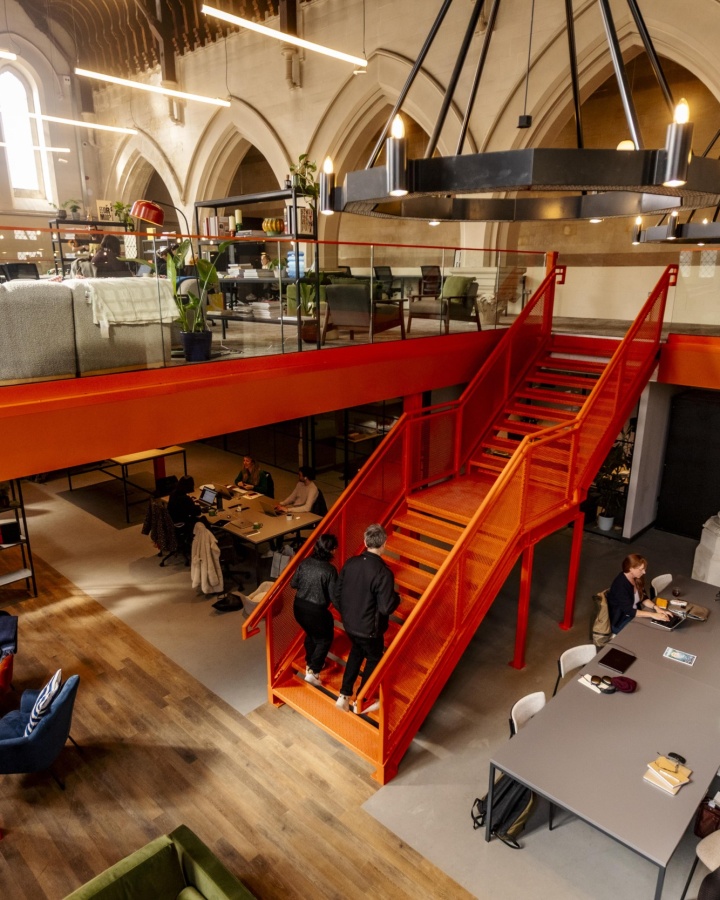
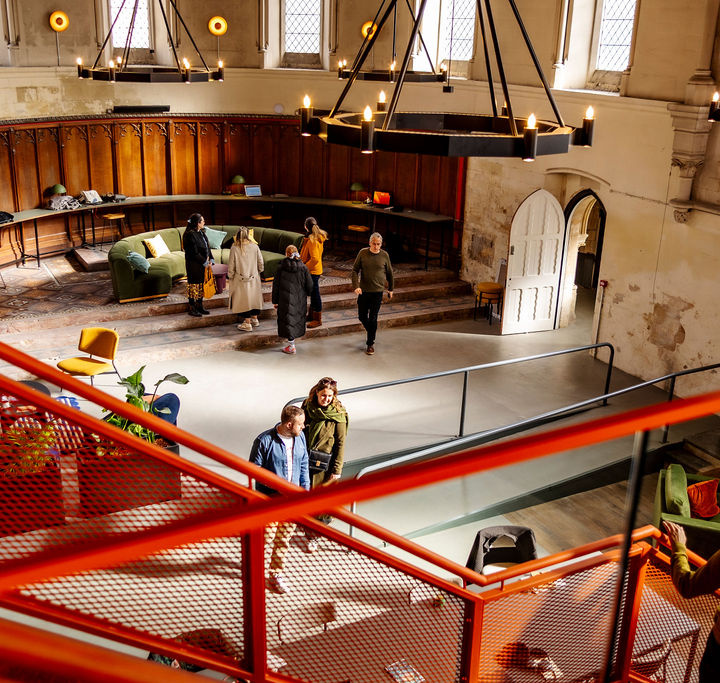
Centre • Bath
Breakfast
Talks
Socials
Run Club
Crafts
Music Events
Summer Party
For Hire
Breakfast
Talks
Socials
Run Club
Crafts
Music Events
Summer Party
For Hire
Breakfast
Talks
Socials
Run Club
Crafts
Music Events
Summer Party
For Hire
Breakfast
Talks
Socials
Run Club
Crafts
Music Events
Summer Party
For Hire
Breakfast
Talks
Socials
Run Club
Crafts
Music Events
Summer Party
For Hire
Breakfast
Talks
Socials
Run Club
Crafts
Music Events
Summer Party
For Hire
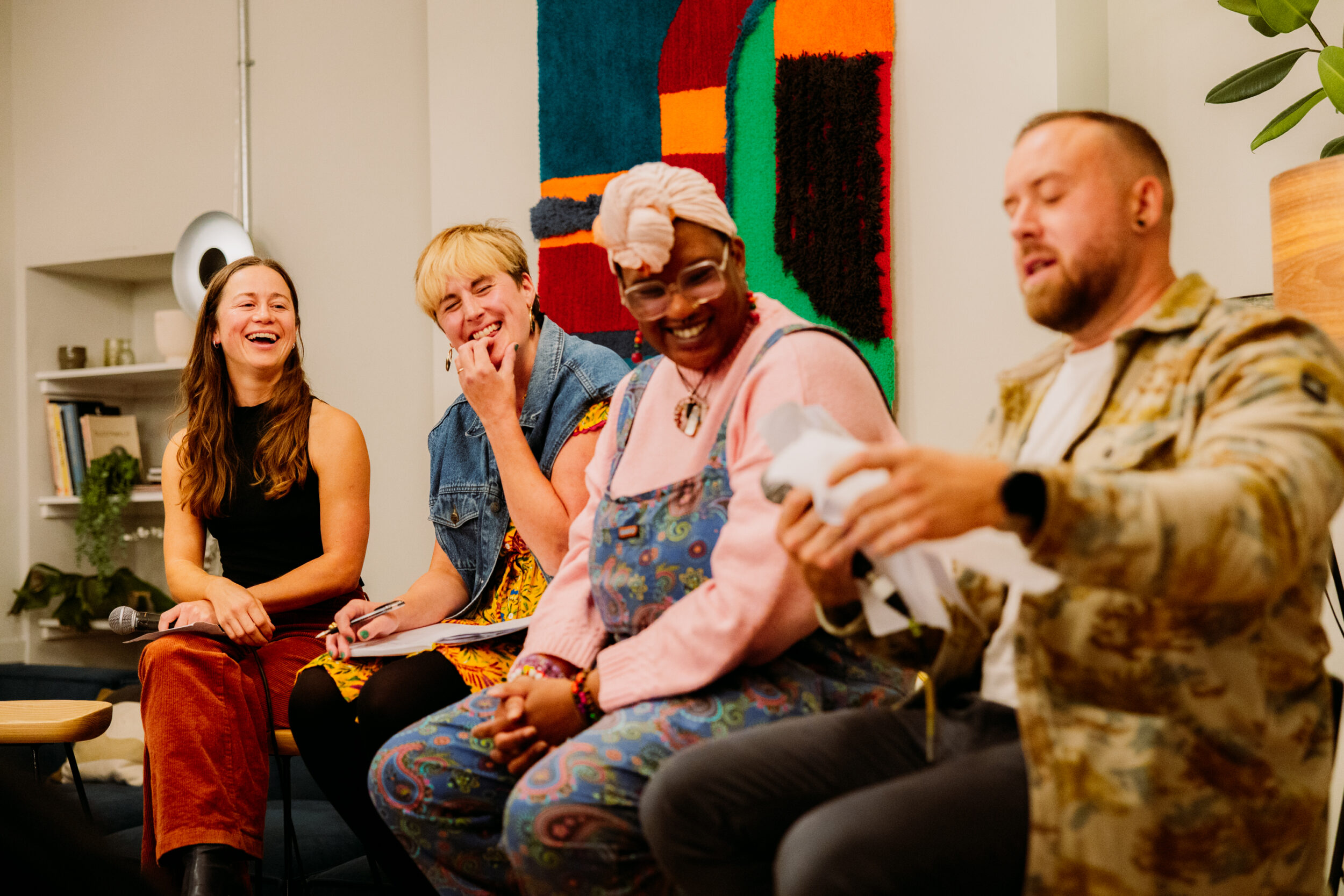
Last month, we opened the doors on the 8th edition of Gather Round Presents, this time in our beautiful event space at Brunswick Square, with such a stellar lineup, we knew we were in for a treat. After a cosy briefing with our panellists, we were met with a long queue local creative minds eager to get inside.
Jason, our Co-Founder hosted the evening, he set the tone by speaking openly about Gather Round’s six-year journey and the creative community that has grown around it. It was a joy to see the space full of like-minded people ready to get stuck into the conversation.
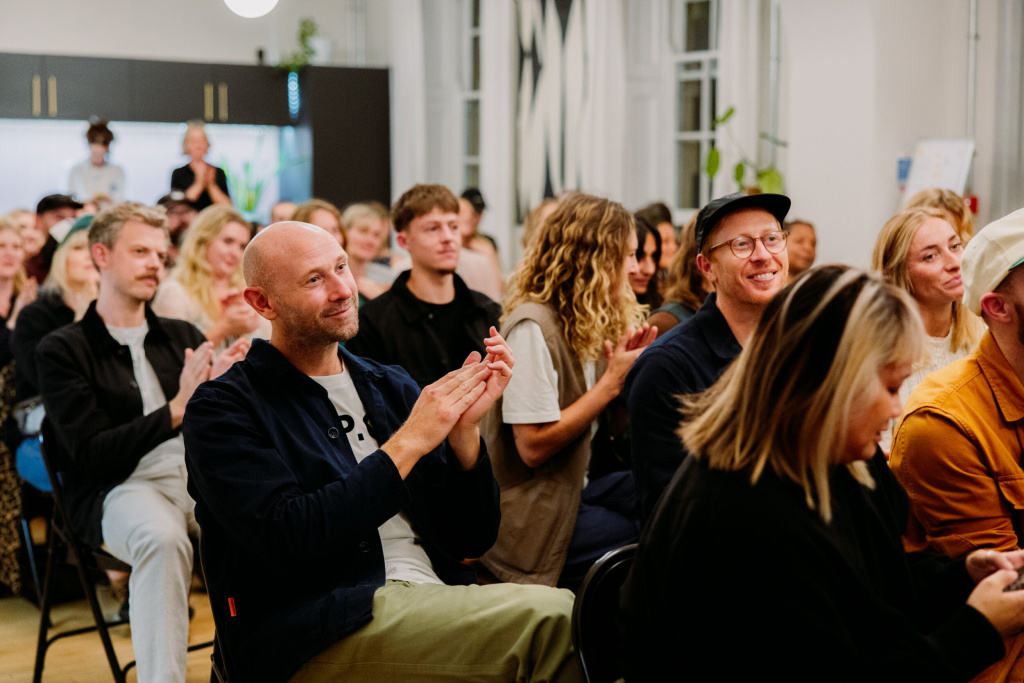
Leanne Anyinsah kicked things off, sharing stories from her childhood and her belief that nature and creativity have everything to do with… everything! Growing up introverted, she found comfort in art — drawing on any surface she could find — and in the company of animals rather than people. She spoke candidly about the mental health struggles that followed in her teens and how her curiosity about others eventually led her into roles as a victim care officer, therapist, and the first non-police hostage and crisis negotiator. Her talk centred on 3 reasons why nature played a critical part in her creativity and wellbeing; by noticing the details, creating spaciousness and having connection. Through her CIC, Soul Trail Wellbeing, she now helps others find presence and healing in the outdoors.
Calling the Lake District home, Jeffrey Bowman, Brand and Creative Director, explored creativity and nature through the lens of storytelling. “What is creativity to me?” he asked. “Storytelling. And nature? Story belonging.” He spoke about the importance of zooming out and seeing ourselves as part of a much bigger picture, sparking laughter when he reminded everyone, “You’re not the main character.” His closing message, though, was serious: the real magic lies in story doing — using creativity to act, not just think. “It’s time for brands to shut up and start talking,” he said, urging creatives to align with purpose-driven work and brands that connect people, planet and story.
Bonnie Middleton, Enviral’s Marketing Manager and lifelong nature champion, shifted the energy with a short breathwork meditation. When she asked where people had imagined themselves, almost every hand shot up for a place in nature. Growing up in Pembrokeshire National Park with a climate-conscious family, she shared how being surrounded by nature shaped her worldview — and how lucky we are in Bristol to have green spaces like Ashton Court, Leigh Woods and Eastwood Farm right on our doorstep. Drawing on Miles Richardson’s “five pathways to nature connection” — touch, beauty, compassion, emotion and meaning — she invited everyone to bring those ideas into daily life: feel the grass under your feet, care for a plant on your windowsill, sit in awe at your local park. “Creativity exists in both wild landscapes and urban cracks,” she said, leaving the room inspired.
Next up, Charlotte Horler began her talk by playing an audio soundscape of nature through the speakers, then asked the audience who had ever felt like they “needed two months off and for no one to talk to them.” Almost every hand went up. She laughed, then shared her journey from London — where her only animal encounters were pigeons — to rural Kenya, where she was surrounded by astonishing biodiversity. Moving back to London and experiencing the disparity between the two places, inspired her to start Nula in 2021, but it also led her to burnout. After heart palpitations and endless doctors’ visits from over-working, she began rethinking how to balance work, rest and nature. We process 11 million pieces of information per second, she said, but can only handle 15. Her antidote? Lean into “soft fascination” — that dreamlike attention nature invites. “Feeling the 3pm slump?” she asked. “Go for a walk and a daydream.” Her advice: schedule time in nature like any other meeting, and creativity will follow.
After a short break, the audience returned to their seats eager to start the raffle. We gave away prizes from OTSDR, Jeffrey Bowman, Delli and Canopy and Stars. Thank you to everyone who donated a gift for this event, 6 very happy winners!
Mose-Issie was next to take to the mic. The Co-Founder of Sunflower Collective CIC, they immediately lifted the room with humour and warmth. Growing up on a dairy farm in Cork as part of the first black family in their town, they were surrounded by animals and open space — even once starring in a BAFTA-winning documentary after bringing three cows to school! Casual. But, everything changed when they moved to the UK and lost access to green space. Teachers soon noticed that nature helped calm them, planting a seed that would grow into their life’s work: helping young Afro-Caribbean children reconnect with nature through creative workshops, art and play. Their message was simple but powerful — that nature connection belongs to everyone, and that inner child healing can happen in the most unexpected ways.
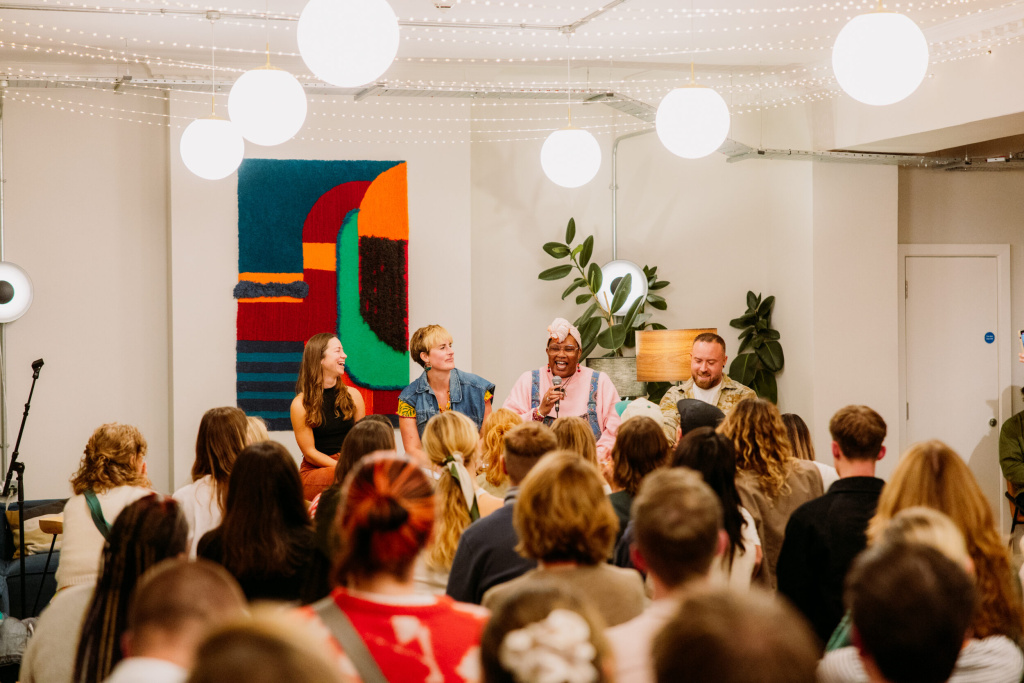
Natasha Bergg approached the theme through community arts, exploring how play and reconnecting with our inner child sit at the heart of her ethos. Having led countless creative programmes with marginalised young people, she’s now channeling that energy into a new production of The Secret Garden for The Egg Theatre in Bath. Reflecting on her time with the Wildfowl and Wetlands Trust, she spoke about imposter syndrome, creative renewal and nature as home — a place of safety, equality and belonging. Reading from her own writing, she drew on Virginia Woolf and Mary Oliver to illustrate how nature levels and grounds us, reminding us to notice the details and make space for who we truly are.
Finally, Maria Fernandez Garcia closed the talks with warmth and laughter — and a story about the dinner-plate-sized tarantula. Growing up in London, Maria was never the “kid with dirty hands.” She was scared of bugs, hated moths, and never saw being outdoors as normal. After lockdown forced her to reevaluate, she began taking evening courses in herbal medicine out of curiosity, only to realise how much of what she’d learned about herbs was wrong. The “old wives’ tales” she’d dismissed were fragments of ancient knowledge — lost through what she calls an “intentional severance” from nature, like the persecution of wise women and herbalists throughout history. During lockdown, she began spotting the same plants she’d studied growing all around her — powerful, accessible, and everywhere. Now, through her work supporting over a thousand people to reconnect with nature through Healing Weeds, she teaches presence and patience through the rhythms of the natural world. “I missed elderberry season once,” she said, “and had to wait for the next — that’s patience.” For Maria, nature is both teacher and healer — a way to “find light in the darkness.”
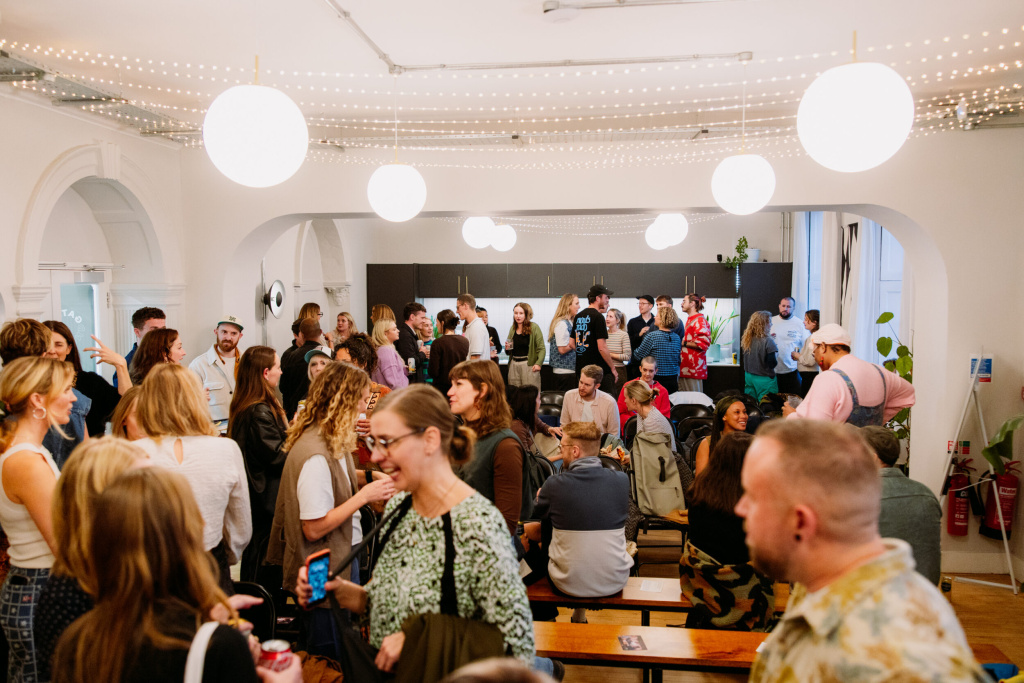
The Q&A that followed was full of more honest conversation. Our panellists shared how they weave nature into daily life — Charlotte by walking without headphones, Natasha through her “nature solos,” Leanne by pairing outdoor moments with everyday habits. When a parent asked how to connect with nature while still trying to keep their kids alive, Maria smiled: “You grab whatever they’re drawn to and pivot with it.” Mose added with a laugh, “Turn it into a lesson — the sentiment is beautiful… just don’t eat the mud.”
Conversation turned to play, inclusion and the future of nature connection. Mose imagined a world where everyone has access to green space. Charlotte envisioned a four-day work week and a nature-first workforce. Leanne hoped for a future where human and planetary wellbeing are seen as one and the same: “The more people care, the more people care.” Maria imagined a right to roam, “a reconnection to the stories held in the land.” And Jeffrey closed by saying how refreshing it was to spend an evening not talking about AI: “There are no machines without us — we’re trying to reinsert humans back into the process.”
Bonnie wrapped things up with a simple, powerful reminder: “We need longer-form imagination — to picture the world we want to exist in. When we care for nature, we’ll protect it.”
Our next Gather Round Presents event is being curated already, sign up to our newsletter to be the first to get an invite and follow us on Insta for more updates.
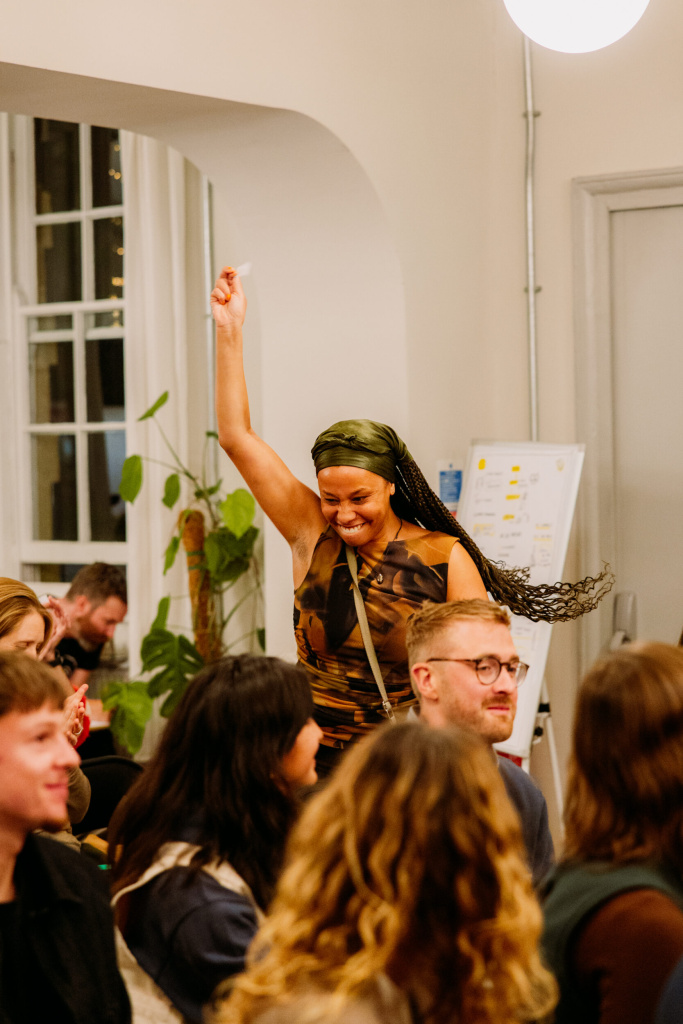
This month, we’re launching a brand new Flexi Plus space. And to celebrate, we’re offering the first month free to anyone who joins us in Bristol or Bath between 1st and 31st October.
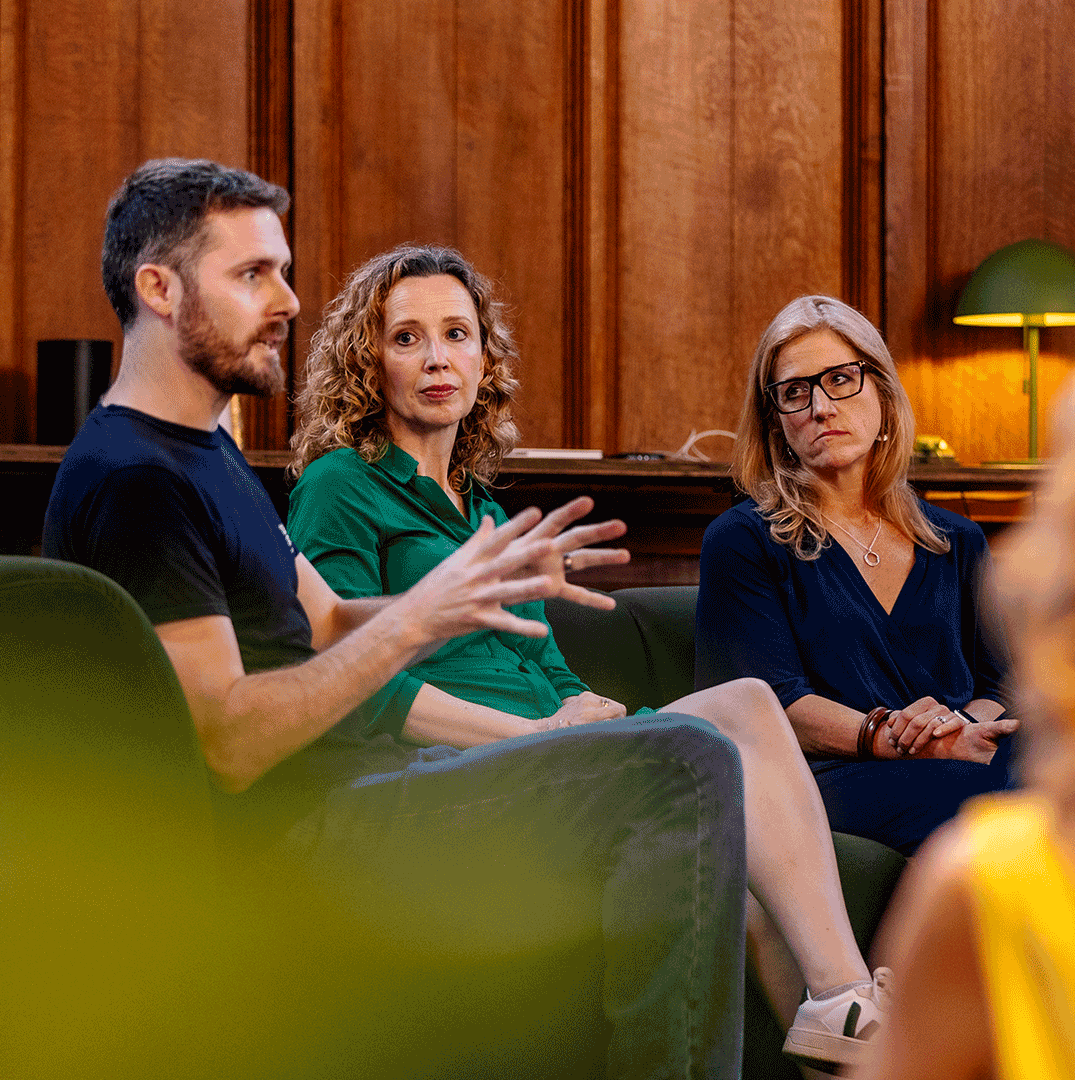
Our unique and varied spaces in Bristol and Bath cater for keynotes, networking, workshops, rehearsals and much more.
Find out more
Your specialist delivery avian is now in transit. We’ll be in touch when he reaches us.